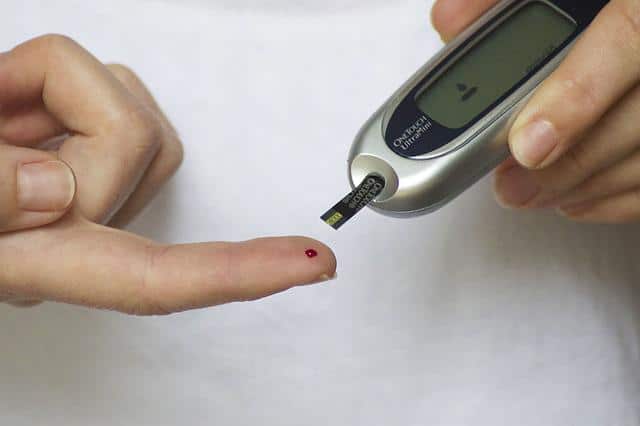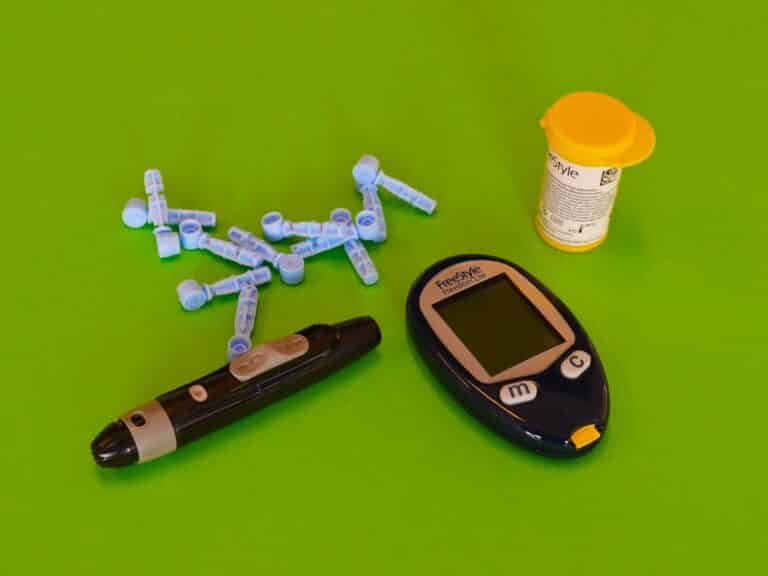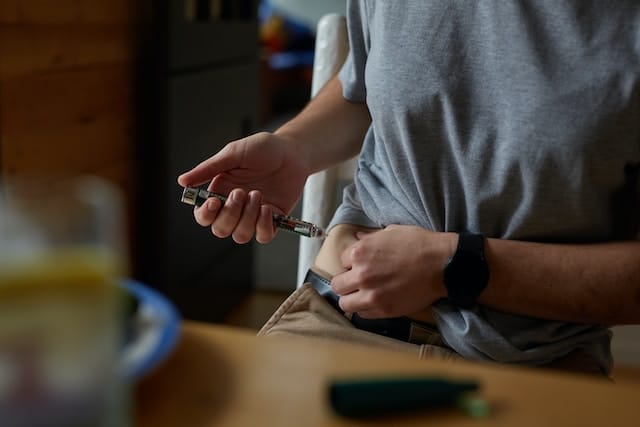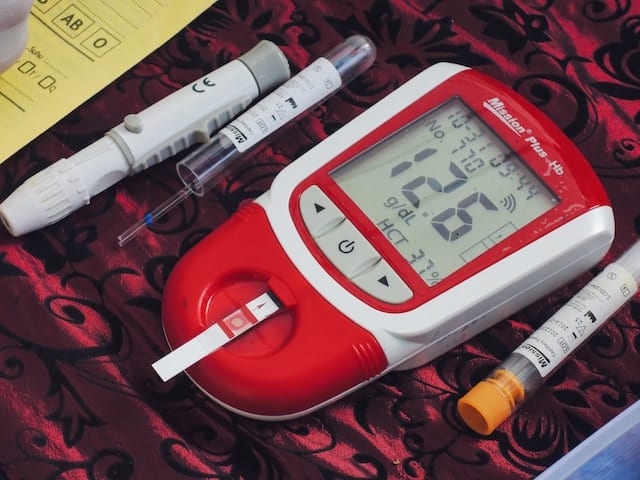Seven Ways Seniors Can Manage Their Blood Sugar Levels
Our bodies change as we age, emphasizing the importance of controlling blood sugar levels, especially for seniors. According to the American Diabetes Association, over 15 million seniors have diabetes, either diagnosed or undiagnosed.
Elevated blood sugar levels can lead to serious health concerns, especially in older people already dealing with other medical conditions. Living with diabetes may be difficult, and sticking to a tight medication regimen can sometimes be intimidating and draining.
So, how can seniors manage fluctuating sugar levels effectively? Read on to find seven practical ways seniors can efficiently control their blood sugar levels, improving overall health and well-being. With its focus on early self-care and valuable, insightful resources, this guide aims to support seniors on their journey to better blood sugar management, allowing them to regain control and vitality in their daily lives.
-
Consider the Comorbidities
Diabetes patients should be aware of frequent comorbidities that might exacerbate their illness. Examples include cardiovascular illness, renal disease, neuropathy, vision impairments, and cognitive impairment. Blood pressure, cholesterol levels, renal function, and eye examinations must all be evaluated regularly. Foot care is critical for detecting neuropathy early. Furthermore, multiple studies imply a relationship between diabetes and cognitive decline, emphasizing the importance of brain health maintenance.
Seniors with a history of asbestos exposure should also look for cancer signs such as mesothelioma, a rare type of cancer, if they feel symptoms like chest pain, shortness of breath, and unexplained weight loss. In such cases, contact someone who can help, such as a doctor specializing in diagnosing, treating, and researching the field of mesothelioma. A doctor may be able to diagnose asbestos-related cancer using a variety of tests, including chest scans, blood tests, and tissue biopsies. Pleural mesothelioma specialists refer to doctors who specialize in treating mesothelioma that develops in the lining of the lungs, also known as pleura.
Note: Preventive steps and frequent check-ups can help elders manage potential issues and preserve good overall health.
-
Exercise Consistently
Regular physical exercise is an important part of regulating blood sugar levels in seniors. Regular exercise can help increase insulin sensitivity, allowing the body to use glucose more effectively and steady blood sugar levels.
Seniors have many alternatives when it comes to physical activity, and selecting an exercise plan that meets their preferences and physical ability is vital. Some of them are listed below:
- Walking is a low-impact form of exercise that you can fit into any schedule. A brisk walk for at least 30 minutes daily can greatly improve general health and control of blood sugar.
- Swimming is also a moderate yet efficient aerobic activity that provides cardiovascular benefits without placing undue strain on joints.
- Yoga, which includes mild stretching, strengthening exercises, and relaxation methods, is another excellent alternative for seniors.
-
Eat a Balanced Diet
Maintaining a healthy diet is critical for elders to control blood sugar levels. Emphasize nutritious food items while reducing sugary and processed meals.
Whole grains, such as brown rice and quinoa, release glucose slowly, minimizing blood sugar increases. Lean proteins from fish, chicken, and beans satisfy their appetite while supporting muscular function. Moreover, avocados and almonds include healthy lipids that help regulate blood sugar. Fruits and vegetables give critical nutrients as well as fiber, which slows the absorption of sugar.
Even if their meals are deemed nutritious, seniors should be cautious of portion sizes and avoid overeating. A certified dietician can assist seniors in determining proper portion sizes and developing personalized meal plans that address their nutritional needs and health objectives.
-
Monitor Blood Sugar Levels
Seniors can observe patterns and changes in their blood sugar levels throughout the day through consistent blood sugar monitoring. They can keep their blood sugar within the goal range their healthcare physician prescribes if they understand how particular meals, activities, and prescriptions impact their glucose levels.
Seniors should be aware of symptoms that may suggest hyperglycemia (high blood sugar) or hypoglycemia (low blood sugar) in addition to checking blood sugar levels. Hyperglycemia symptoms include:
- Increased thirst
- Weariness
- Frequent urination
- Blurred vision
Whereas hypoglycemia symptoms include:
- Shakiness
- Disorientation
- Dizziness
- Sweating
Addressing these symptoms immediately can prevent problems and maintain stable blood sugar levels.
-
Limit Alcohol Intake
Blood sugar levels might fluctuate as a result of alcohol use. Excessive consumption can cause a reduction in blood sugar levels, raising the risk of hypoglycemia. Furthermore, alcoholic beverages frequently include added sugars or carbs, which can trigger blood glucose rises. Seniors should be aware of the kind and amount of alcohol they consume and should pick lower-sugar beverages or sugar-free mixers.
Furthermore, alcohol can interfere with diabetic medications, reducing their efficacy or raising the risk of adverse effects. Seniors who use insulin or other blood sugar-lowering drugs should be very cautious regarding alcohol intake. Drinking alcohol without adequate precautions might result in significant health consequences.
-
Stay Stress-Free!
Stress management is an important part of blood sugar control for diabetic elders. Chronic stress causes the release of stress hormones like cortisol, which can result in insulin resistance and high blood sugar levels. Seniors should use stress-reduction tactics to decrease stress and improve their general well-being.
Regular relaxation methods are an excellent strategy for seniors to handle stress. Meditation, deep breathing exercises, and gradual muscle relaxation can all reduce stress and produce a sense of calm. These tactics are simple to adopt into regular activities and can be especially effective in difficult or stressful situations.
Another fantastic stress-relief method for elders is to spend time in nature. Outdoor activities like strolling in the park or gardening can improve mental health and reduce stress.
-
Get Enough Hydration
Staying hydrated is critical in maintaining blood sugar levels in diabetic elders. Drinking enough water throughout the day helps the body maintain blood sugar levels and can help prevent dehydration-related issues. Seniors should strive to drink at least 8-10 glasses of water each day, although individual needs may vary depending on age, medical conditions, and physical activity.
Sipping water throughout the day might benefit seniors who find it difficult to consume significant amounts of water at once.
Keeping a water bottle near you or setting reminders to drink water regularly might also help you stay hydrated. Moreover, seniors can increase their fluid intake by eating water-rich meals like fruits and vegetables.
Conclusion
Providing seniors with the knowledge and tools to manage their blood sugar levels effectively is critical. Seniors can handle their diabetes prevention journey by being proactive and making informed lifestyle choices. From creating a nutritious diet to exercising regularly and watching for potential comorbidities, these actions pave the way to a more vital and rewarding life. With the seven ideas above, seniors can confidently embrace their diabetes with love and devotion, allowing them to enjoy their golden years with improved vigor and control over their health.
Image Credit






